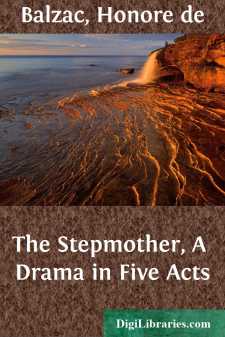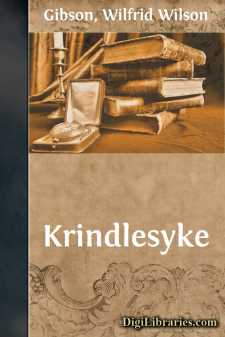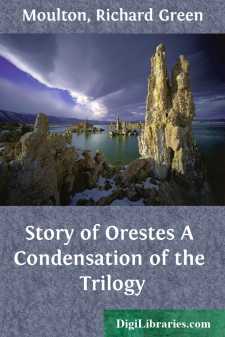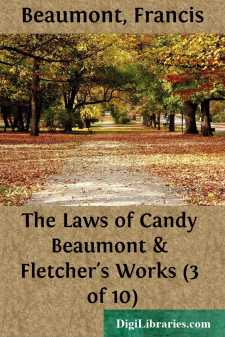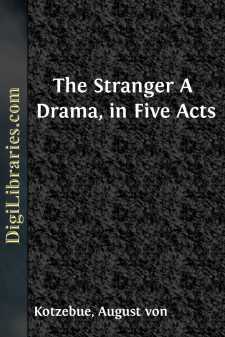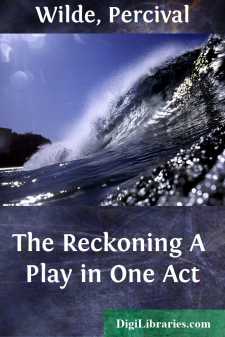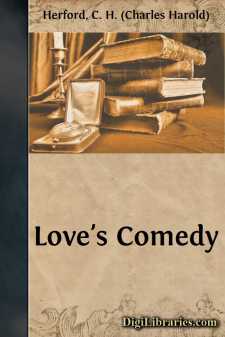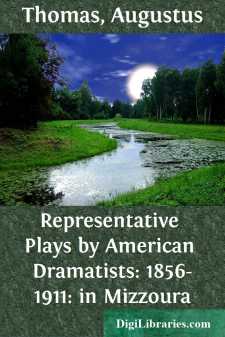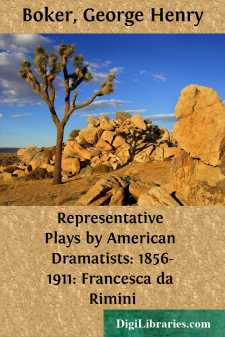Drama Books
Sort by:
by:
Honore de Balzac
ACT I SCENE FIRST (A richly decorated drawing-room; on the walls are portraits of Napoleon I. and his son. The entry is by a large double glass door, which opens on a roofed veranda and leads by a short stairway to a park. The door of Pauline's apartments are on the right; those of the General and his wife are on the left. On the left side of the central doorway is a table, and on the right is a...
more...
BOOK I PHŒBE BARRASFORD Krindlesyke is a remote shepherd’s cottage on the Northumbrian fells, at least three miles from any other habitation. It consists of two rooms, a but and a ben. Ezra Barrasford, an old herd, blind and decrepit, sits in an armchair in the but, or living-room, near the open door, on a mild afternoon in April. Eliza Barrasford, his wife, is busy, making griddle-cakes over the...
more...
MEMORANDUM The Sacred Legends touched by this Trilogy would be familiar, in outline, to the Auditors: e. g.: The woes of the House of Atreus: the foundation of them laid by Atreus when, to take vengeance on his brother Thyestes, he served up to him at a banquet the flesh of his own sons; His grandsons were Agamemnon and Menelaus: Menelaus' wife, Helen, was stolen by a guest, Paris of Troy, which...
more...
by:
Francis Beaumont
Actus PrimusScena Prima Enter Gaspero, and Melitus MelitusSir, you're the very friend I wish'd to meet with,I have a large discourse invites your earTo be an Auditor. GasperoAnd what concerns it? MelitusThe sadly thriving progress of the lovesBetween my Lord, the Prince, and that great Lady,Whose insolence, and never-yet-match'd Pride,Can by no Character be well exprest,But in her only...
more...
REMARKS. There seems to be required by a number of well meaning persons of the present day a degree of moral perfection in a play, which few literary works attain; and in which sermons, and other holy productions, are at times deficient, though written with the purest intention. To criticise any book, besides the present drama, was certainly not a premeditated design in writing this little essay; but...
more...
by:
Horace Holley
INTRODUCTION The first two or three of these "plays" (I retain the word for lack of a better one) began themselves as short stories, but in each case I found that the dramatic element, speech, tended to absorb the impersonal element of comment and description, so that it proved easier to go on by allowing the characters to establish the situation themselves. As I grew conscious of this...
more...
by:
Percival Wilde
THE RECKONING The scene is a barber shop. At the center is the chair, facing a mirror and washstand at the right. The tiled walls are sprinkled with the usual advertisements. At the rear, a door leads up to the street by a flight of two or three steps. A dock on the left wall indicates three. At the rise of curtain, THE BARBER, a man of fifty, is discovered sharpening a razor, and whistling softly to...
more...
INTRODUCTION* Koerlighedens Komedie was published at Christiania in 1862. The polite world—so far as such a thing existed at the time in the Northern capital—received it with an outburst of indignation now entirely easy to understand. It has indeed faults enough. The character-drawing is often crude, the action, though full of effective by-play, extremely slight, and the sensational climax has...
more...
by:
Augustus Thomas
AUGUSTUS THOMAS (Born, St. Louis, Mo., January 8, 1859) It is not a new thing for a dramatic author to write prefaces to his plays. We are fortunate in possessing a series of personal opinions in this form that constitute a valuable asset in determining individual attitude and technical purpose. Read Schiller's opening remarks to "The Robbers," Victor Hugo's famous opinions affixed to...
more...
GEORGE HENRY BOKER (1823-1890) The name of George Henry Boker suggests a coterie of friendships—a group of men pledged to the pursuit of letters, and worshippers at the shrine of poetry. These men, in the pages of whose published letters and impressions are embedded many pleasing aspects of Boker's temperament and character, were Bayard Taylor, Richard Henry Stoddard, and Charles Godfrey Leland,...
more...


